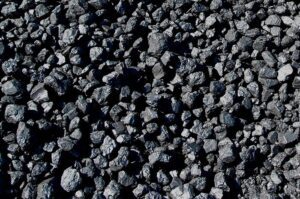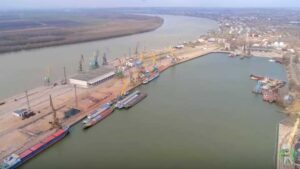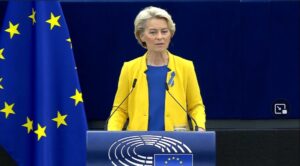Import of goods in jan-oct 2022 in most important positions and in relation to same period in 2021

Source: Open4Business.com.ua and experts.news

Ukraine did not export coke in January this year, as it did in December last year, whereas in January 2022 it exported 1.012 thousand tons.
According to statistics released by the State Customs Service (SCS), last month Ukraine imported 5.289 thousand tons of coke and semi-coke, which is 93.9% less than in January 2022.
In monetary terms, imports fell by 95% to $2.388 million.
Imports came mainly from Poland (64.26% of supplies in monetary terms), Colombia (24.01%) and Hungary (11.73%).
As earlier reported, in 2022, Ukraine reduced the export of coke and semi-coke in volume terms by 98% compared with the previous year – up to 3.856 tons, in monetary terms by 97.6% – to $1.011 million. The main export was carried out in Hungary (42.63% of supplies in monetary terms), Georgia (37.69%) and Turkey (17.41%).
Ukraine imported 359.192 thousand tons of coke and semi-coke in 2022, down 54.5% compared to 2021. In monetary terms, imports decreased by 50.3% to $174.499 million. Imports were mainly from Russia (43.43% of supplies in monetary terms, before the war), Poland (30.07%) and the Czech Republic (13.15%).
As a result of the war, a number of mines and coke plants found themselves in territories temporarily outside Ukrainian control.

Ukraine in January 2023 decreased imports of coal and anthracite (HS code 2701) in 48.1 times (by 1 million 805.902 thousand tons) compared to the same period in 2022 – up to 38.318 thousand tons.
According to the State Customs Service, the coal was imported for $13.605 million, which is 31.3 times less than in January 2022 ($426.314 million).
Coal from Australia came to $7.92 million (58.21%), Poland – $5.627 million (41.36%), South Africa – $0.058 million (0.43%).
Ukraine’s exports of coal in January 2023 amounted to 51,453 thousand tons worth $15.151 million, including to Slovakia – $10.09 million, Poland – $2.041 million, Austria – $1.994 million and other countries – $1.026 million.
As reported, Ukraine in 2022, reduced imports of coal and anthracite in 4.2 times (14 million 932.904 thousand tons) compared to 2021 – up to 4 million 630.144 thousand tons.
Coal was imported for $1 billion 179.113 million, which is 2.1 times less than in 2021 ($2 billion 488.698 million). The Russian Federation received $431.082 million worth of coal (pre-war supplies, a 36.56% share of imports), the United States $309.178 million (26.22%), Australia $199.491 million (16.92%), and other countries $239.363 million (20.3%).

Port of Reni for the first time since the independence of Ukraine has attracted a new cargo flow – citrus fruits from Egypt, which in peacetime went through the larger ports of “Big Odessa”, the Administration of Sea Ports of Ukraine (AMPU) reported on Facebook.
“Last week a refrigerated vessel “ZEINAB”, equipped with enhanced ventilation and refrigeration units for the transportation of perishable goods, arrived at the port of Reni,” AMPU said in a statement.
In particular, 519.9 tons of fruit were delivered from Egypt: 150.3 tons of oranges, 169.4 tons of pomegranates, 31.05 tons of lemons and 169 tons of tangerines.
AMPU specified that citrus fruits were traditionally transshipped by Chornomorsk and Odessa ports.
The leader among them was the port “Chernomorsk”, which transshipped 253 thousand tons of citrus in the last five years: in 2018 – 83.6 thousand tons, in 2019 – 74.1 thousand tons, in 2020 – 43 thousand tons, in 2021 – 35.5 thousand tons and in 2022 – 16.8 thousand tons.
Port “Odessa” during the same period transshipped 134.2 thousand tons of citrus: in 2018 – 45.4 thousand tons, in 2019 – 40.4 thousand tons, in 2020 – 26.5 thousand tons, in 2021 – 14.3 thousand tons and in 2022 – 7.6 thousand tons.
AMPU reminded that now the ports of Greater Odessa work only within the framework of the “grain initiative”, so the cargo owners are forced to seek other ways to deliver citrus to consumers.
Earlier analytical project “Club of Experts” analyzed in detail the trade and economic cooperation between Ukraine and Egypt, see in detail in the video:
ATIA_VALID, BUSINESS, CLUB_EXPERTS, CLUB_EXPORTERS, EGYPT, EXPORT, GOODS, IMPORT, LITVINOVA, TRADE, UKRAINE, URAKIN

The electricity deficit has slightly decreased due to increased production, but remains at a significant level and is still insufficient to cover consumption in full, NEC Ukrenergo said.
“After repairs, two units at thermal power plants returned to the grid. At the same time, one unit was taken out for emergency repairs. Also during almost all day there is the import of electricity from other countries,” described the situation “Ukrenergo” in its daily update in the Telegram channel.
At the same time, according to the system operator, power consumption is gradually increasing due to the intensification of frost, with a more rapid increase expected tomorrow with the beginning of the working week.
The company confirmed the information previously promulgated by the network operators on the introduction of limits of consumption in the regions only for the period from 16:00 to 20:00.
The exceptions are the Kyiv and Odesa regions, where there are network restrictions.
In particular, emergency shutdowns continue in Odessa and nearby areas due to a large-scale accident at one of the substations of Ukrenergo.
The company assured that together with the Odessa regional military administration and the regional energy company its specialists are developing reserve schemes of connecting Odessa and nearby areas, and repair teams of Ukrenergo and the regional energy company are working around the clock to eliminate the consequences of the accident and the quickest resumption of power supply.
As reported, since Sunday morning, in order to avoid accidents due to equipment overload, stabilization shutdowns have been introduced in Goloseevskyi, Solomenskyi and Pecherskyi districts, as well as on the Left Bank of the capital. In the Kiev region, restrictions will be applied in Kiev-Svyatoshinsky district. Due to the accident, there is also temporarily no light in Fastivsky and Vasylkivsky districts of Kyiv region.
On Friday evening and then on Saturday morning a large-scale accident occurred at one of the substations of Ukrenergo, as a result of which Odessa and the Odessa region were out of electricity. According to data as of the evening announced by Herman Galushchenko, head of the Ministry of Energy, one third of consumers were connected to the grid.

The European Commission will propose to the EU member states to extend the suspension of all customs duties and trade protection measures on imports from Ukraine for a year, the head of the European Commission, Ursula von der Leyen, has said.
“Last year, we abolished all duties and quotas for goods from Ukraine. It was a great success… Today I can announce that we will propose to prolong this trade agreement for the next year,” – said von der Leyen during a press conference with Ukrainian Prime Minister Denis Schmigal.